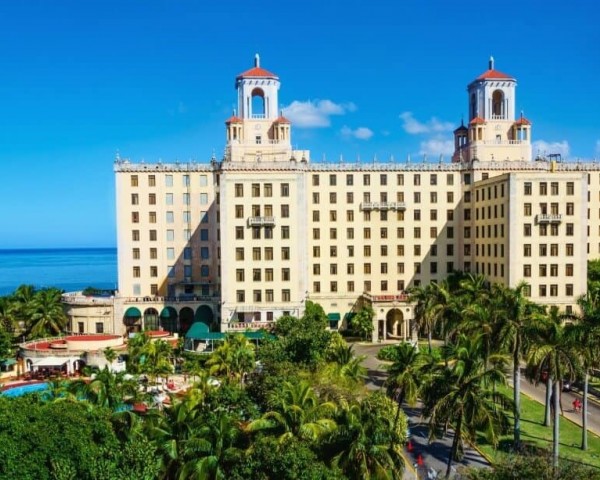Cuba Tourism: State hotels will be leased by international chains
For Cuba’s tourism sector, which has been struggling lately, a significant change is underway: the government has approved a new policy that allows international hotel chains to lease state-owned properties.
This announcement comes at a time when the country is facing growing economic problems. The aim is to revive the tourism sector, which has suffered due to bureaucracy and the impact of the pandemic. Iberostar, a large Spanish company, is leading the way. Beginning on January 1, 2026, they will fully lease and manage the Iberostar Origin Laguna Azul in Varadero. This pilot program has the potential to change Cuba’s planned tourism approach.
In the past, the Ministry of Tourism and GAESA, administered by the military, had tight control over tourism infrastructure. Foreign companies could manage state hotels, but the government closely monitored investment, staffing, menus and wages. Now, the new fare system, led by Prime Minister Manuel Marrero (who was previously tourism minister), aims to ease these restrictions, giving companies more freedom to increase efficiency and attract visitors.
A desperate bid in the midst of a crisis
Cuba’s economy struggles with an ongoing recession, rising inflation, and a shortage of foreign currency, which makes it difficult to import essential goods such as food and fuel. Tourism, along with medical exports and money, is an important source of income, but it has not yet recovered from the effects of COVID-19. Before the pandemic, in 2018, Cuba welcomed 4.7 million tourists. However, the estimate for 2025 is only 1.8 million, a significant decrease from 2024 and well below previous levels.
To address these challenges, the government is implementing practical reforms. By leasing the facilities, the government hopes to ensure a steady flow of foreign exchange, while giving hotel chains more operational freedom to improve services. According to reports from EFE, the Spanish news agency, the first pilot projects will be evaluated before wider implementation, and the conditions will be negotiated individually without a standard framework.
Empowering operators, while retaining ownership
This change is a big change for international companies. They can now directly hire employees, offer competitive wages, and make day-to-day decisions, which is a stark contrast to the old system of paying government-fixed wages in the Cuban peso, which has lost value due to inflation. As representatives of the companies involved noted, “This modernization provides the planning certainty and market-driven flexibility that we have long sought.”
Importantly, the state retains ownership of the property, preserving Cuba’s socialist principles while giving some control over operations. Earlier this year, letters of intent were signed with Chinese partners for the Copacabana complex in Havana, signaling further progress. Although lease rates are not disclosed, this customary approach reflects Cuba’s unique diplomatic strategy.
Dealing with competition and doubt
Some observers see this as a cautious step toward integrating market incentives into a centrally controlled economy, without completely relinquishing native control. However, some doubts persist: Will these new freedoms last despite potential bureaucratic resistance? And will it really boost Cuba’s tourism industry, which has suffered in recent years from poor service and low occupancy rates?
The Caribbean tourism market is highly competitive, with popular destinations such as Cancun in Mexico and Punta Cana in the Dominican Republic experiencing a strong recovery. Cuba, on the other hand, faces challenges such as the US embargo, power cuts, and bureaucratic hurdles that discourage many travelers.
This hotel rental strategy represents a practical shift in ideological boundaries for Cuba. If successful, it could extend beyond tourism, providing a model for hybrid reforms in other struggling sectors. As indicated by the inviting waters of Varadero, Cuba hopes that foreign experts can revive the tropical appeal of this revolutionary island, one rental hotel at a time.




Post Comment